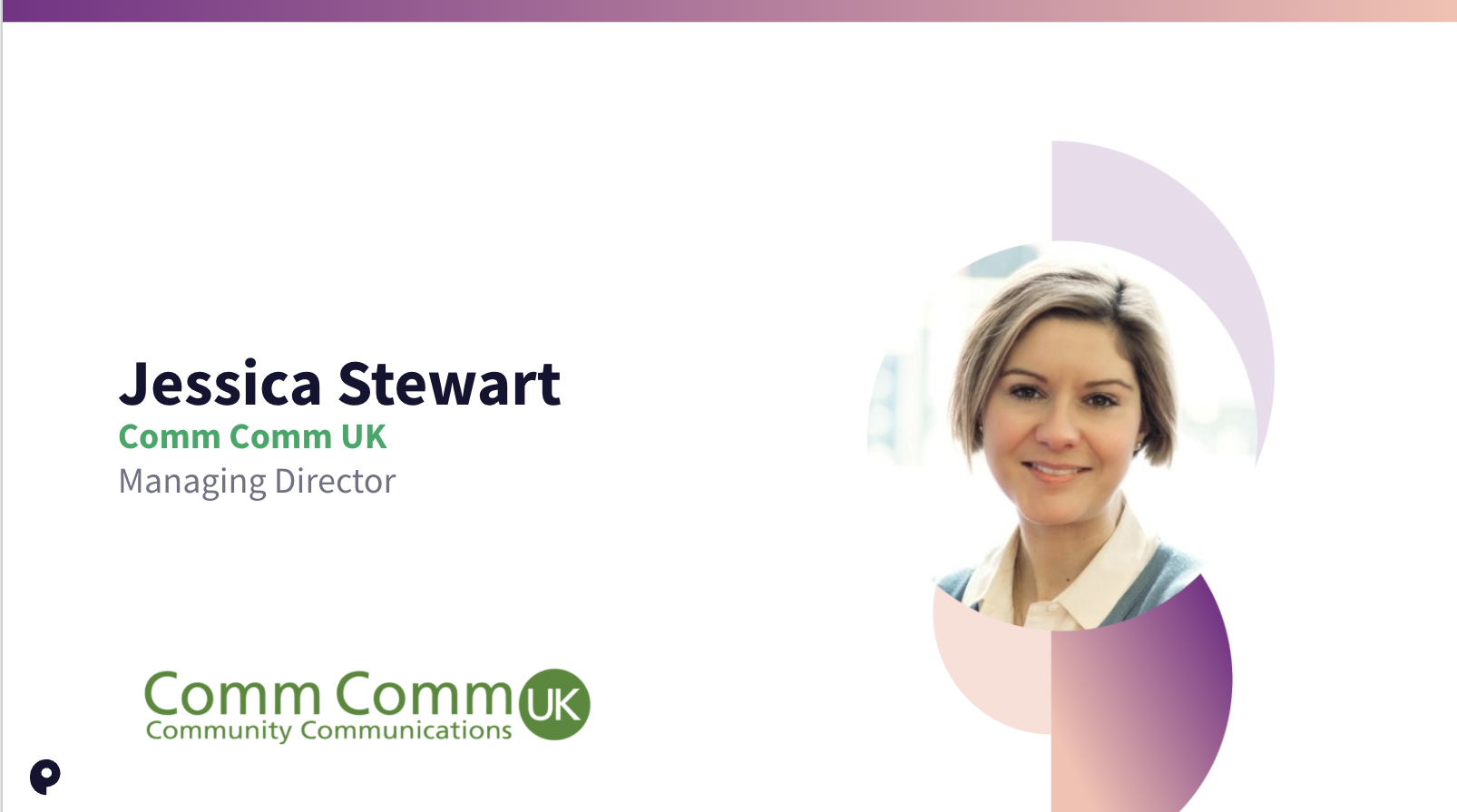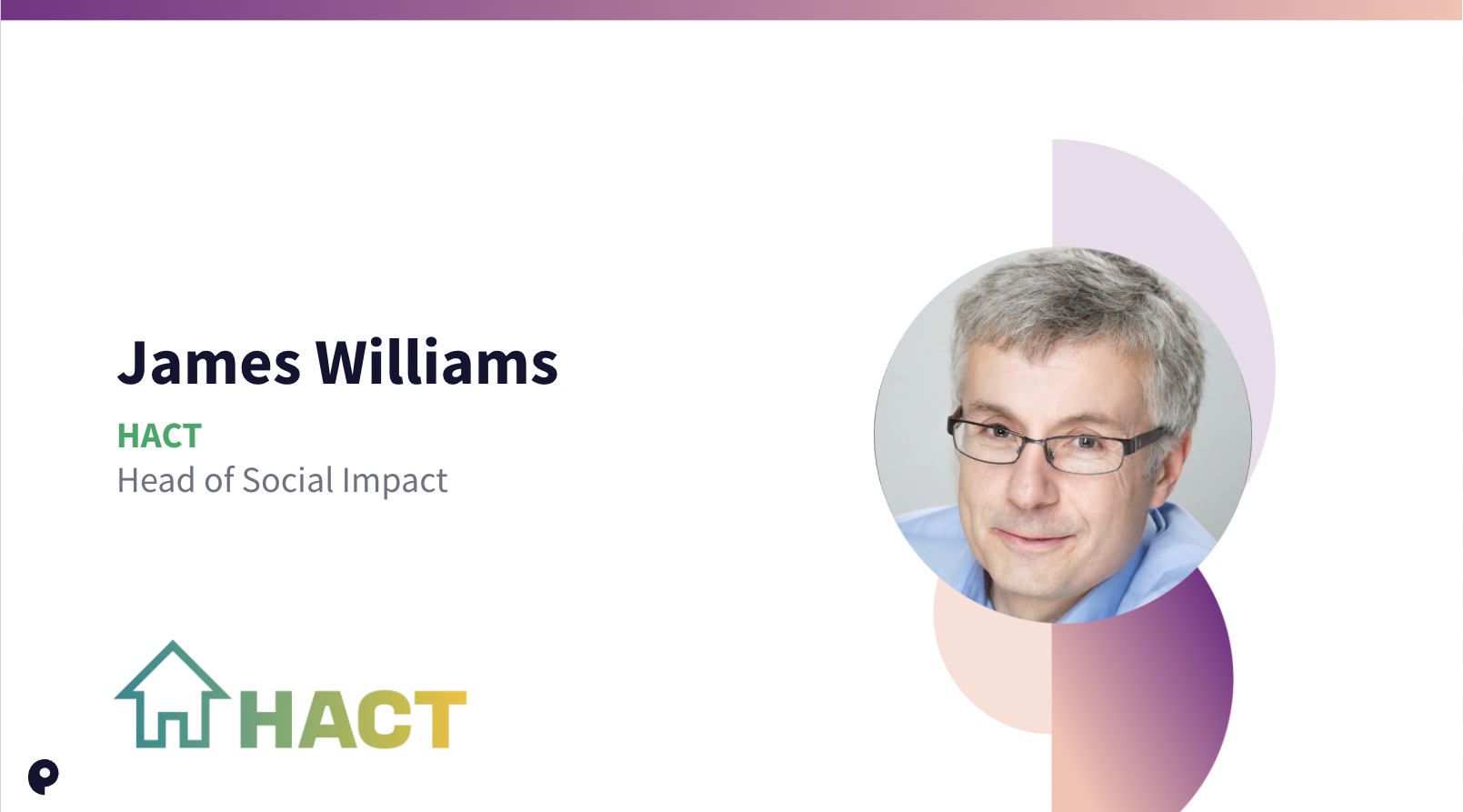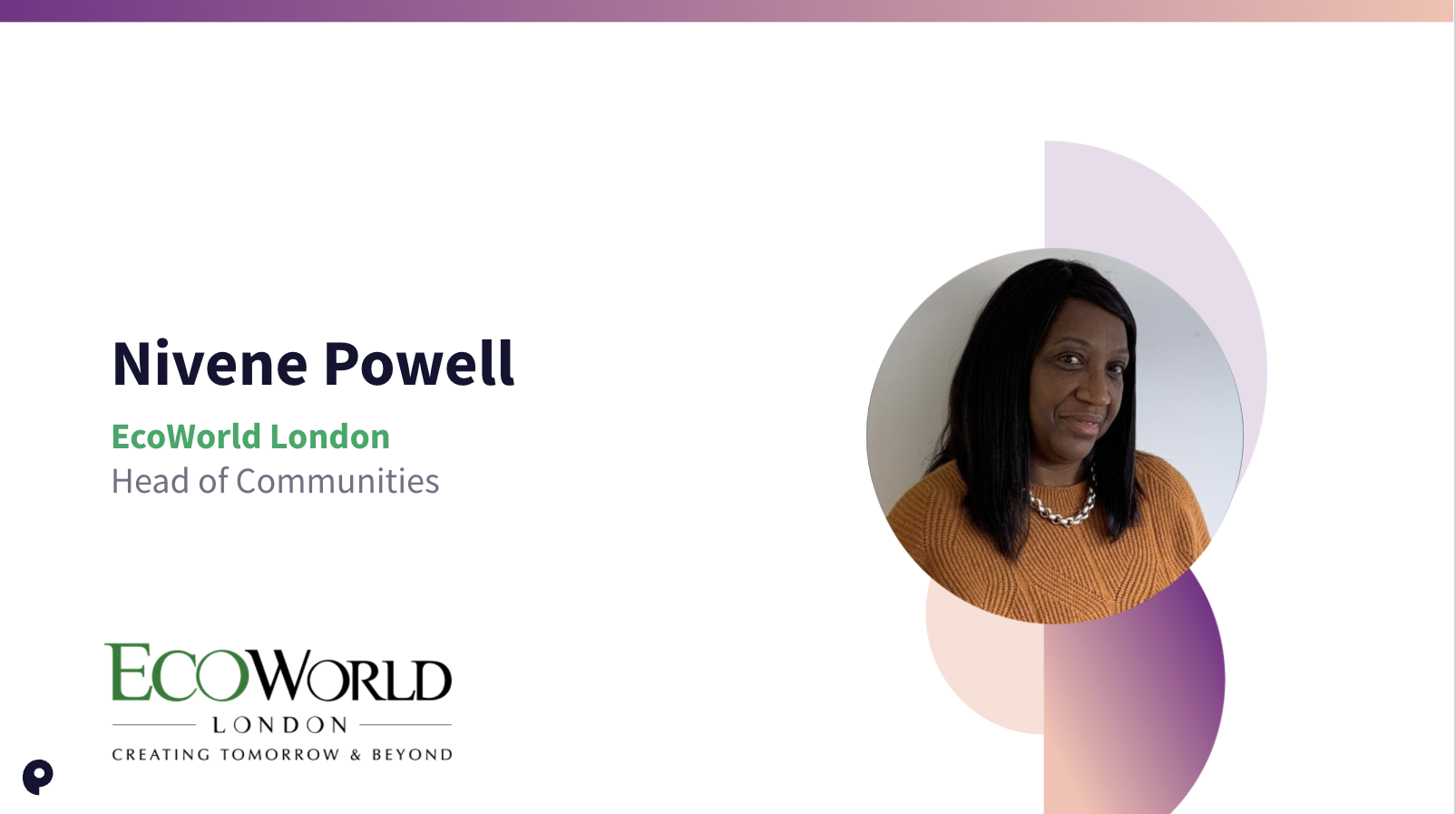Webinar: Listen to tenants through online engagement

By Charlotte Cooper | 30/03/22 08:45
6 min read
Missed out on our webinar: How to listen to tenants through effective online engagement? Fret not! Discover what all our expert panellists had to say about how engagement is closely linked to social value and what housing associations can do to better their relationships with their residents.
Or you can watch the whole thing for yourself. Access the free recording below.
It’s never been more important for tenants in social housing to have a direct line of communication with their landlords. With the confinement of the pandemic showing just how much a home and local areas can affect someone’s well being, the ability to have clear and transparent conversation about their estates and neighbourhoods is crucial.
Only by listening and understanding tenants’ lived experiences can real progress be made, with online engagement playing a huge factor in this- now more than ever. By gathering as many views of the community as possible, social housing providers can vastly improve any upcoming design strategies, construction, post-occupancy evaluations and community projects. On 10th March, we were joined by an expert panel to discuss this:
- Mike Saunders: CEO & Co Founder @Commonplace
- James Williams: Head of Social Impact @HACT Housing
- Nivene Powell: Head of Communities @EcoWorld London
- Jessica Stewart: Managing Director @Comm Comm UK
If you missed out, we're here with a quick rundown of our panellists' talking points as well as access to the free recording which you can watch at your leisure.
Jessica Stewart- Comm Comm UK: What do people want from their homes?

I think community engagement has never been more important or more well respected by, not only the development industry, but everyone across the board. We’ve had a horrible two years and it’s taking a while for everyone to get back to normal and to function with confidence. I think communication is going to be important for getting everyone, especially the tenants in our housing association homes, back to living their lives happily.
So when thinking about the topic of what the housing industry was like pre and post covid, it’s important to remember that it’s a very broad topic. I’m reading a book by Willian Bridges at the moment about transition and how it’s a three phase process: there has to be an ending, a neutral phase and a new beginning. I think societally we’re probably in the neutral phase at the moment. This is where you can be really creative and come up with new ideas. We can hopefully come up with some really great ideas for communicating with tenants as we come out of covid properly and start to live our lives again.
I think the first thing to consider is what the housing industry actually is. Is it the houses themselves and the people who design them? Is it the management of those homes? Is it the companies and associations that run them? Is it people like me who spend most of our days in village halls or on webinars like this?
Well I think it’s everybody as housing is all to do with people. We all live in a home and during covid I think we’ve all had to accept new truths. Digitisation has been massive. I look at my parents and in-laws and they’re more than happy to use zoom at the age of 80. This has had a bigger impact on consultation. We are seeing more people than ever engaging. Before, we might have gotten fifty people to a public exhibition and now we’re seeing a huge number of people from all sorts of demographics engaging.
I think a lot of this comes back to changing aspirations of what people want in their homes. People want freedom- they want outside spaces and freedom to choose how to use their internal spaces. They are choosing to become part of communities now more than ever. They also want safety and security to protect themselves and their families, they want to live in healthy homes and the important thing is to build trust with those tenants through continuity and commitment from housing associations.
James Williams HACT: Using social value frameworks effectively

What’s really interesting about the world as we come out of covid is how engagement and communication has changed. Obviously we’ve had a big kick-start in the working environment with how we’re communicating more online than we used to. I reflect back on the work I used to do with a housing association and how we did community engagement then. I have to say it was fantastic with a lot of face to face work which made you feel as if you were immersed in the community. Meetings, door-knocking and events were all useful tools for engaging with people but I think that technology and social media brings huge opportunities to engage in a different way. There will always be a roll for face to face engagement (as there should be!) but all sorts of organisations are coming up with ways to talk to people that we just hadn’t thought of before.
Seeing some of the work that Commonplace and EcoWorld are doing is really exciting. In terms of HACT (Housing Association Charitable Trust) as an organisation, we have a strong connection to the social housing world and we’ve always been really interested in how you can perceive social change. We have the social value bank which asks a whole range of different questions about how people are feeling and how things change over time. That’s really powerful and I’ve always liked it as it’s asking you to check how people are affected by what you did. Instead of just acknowledging that you’ve held a session with so many people, it asks you to consider what happened because of that session. I vividly remember meetings with community members and the police where the police were saying “we’ve got no record of crime here” and the community answering that there was indeed a problem with crime and that they were worried about it. The social value bank can help with those kinds of situations by understanding feelings better. Of course you can just look at statistics about crime rates but really it’s about if people are feeling safe.
There are a whole range of questions you can ask people, like if they feel like they belong in the community. The social value bank gives you pre and post surveys so you can check with people when things are changing. You can break it down into different sectors and backgrounds too to see what kind of impact you’re making across the entire community. There’s a real opportunity to look at social equity and accessibility.
The work HACT does is evolving all the time. It relies on people out there to test it and use it and feed it back. At its heart, the concept of social value measurement is linked very closely to engagement and communication. The best way to gain trust is to check how they’re feeling about things and to open up and dialogue to check in. That gives you insight that’s really valuable to help you progress in the future.
Commonplace is really at the forefront of this kind of technology and it’s exciting times for our industries!
Nivene Powell- EcoWorld London: Social value and community engagement. Two sides of the same coin

If we’re going to think about the importance of community engagement to social value, we have to remember that you can’t have one without the other. Social value is tailored to the needs of communities. You can have different themes depending on the different demographics of that community. It builds dialogue, so for me, community engagement is integral to anything that we do as service providers.
My background is in the public sector so I can bring all those skills to community engagement and demonstrate how valuable it is to what developers do. It imbeds proactive methods within the way that we work. So for planning, community engagement is core to the planning process. We need to find out what the community wants and needs and how we can get them involved in our place making and design of outside space. It builds relationships with communities and individuals and for me, that’s very very important.
I work very closely with housing associations as well so I build that dialogue to see how we can pool resources in retards to community activities and community projects. It’s about effectively engaging all partners involved with a development to effectively fulfil any social value framework. Community engagement isn’t isolated. It also touches on aspects like diversity and inclusion. Engaging and building up that relationship and having basic conversations with communities that we as service providers find it difficult to engage with is essential.
Community engagement helps to address and connect those who are socially isolated as well. We have a number of the population that find it difficult to physically engage and network so having an online tool is something that can break those barriers. It also helps to leave a legacy.
Social value is not a tick box exercise as it encompasses a number of themes that we know we have to deliver and make a difference on. From a selfish point of view as well, it helps better your reputation when you demonstrate that you are having meaningful dialogue and showing the actions that you’ve taken. Social value is the action arm to community engagement. It’s key to how housing associations tailor their services and it’s important to speak to people so they can have influence on decision making. We provide services to residents to meet their needs rather than telling them what they’re going to have.
We build trust by creating a rapport with community engagement. It runs through every element of what we do.
That was the rundown of our webinar panellists! As always, you can rewatch the whole thing using the link below or sign up for our upcoming webinars right here.
.png)

